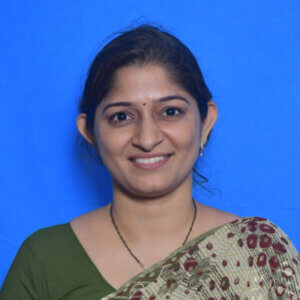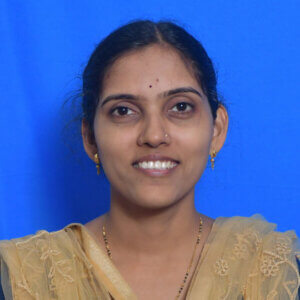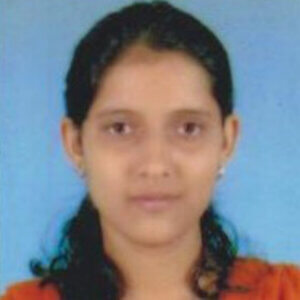Department of English
Establishment : 1945
| Sr.No. | Name | Quantity |
|---|---|---|
| 1 | Language Laboratory | 1 |
| 2 | LCD TV | 1 |
| 3 | Internet Connection | 1 |
Teaching

Ms. Sawant Bhagyashree Ulhas
Professor

Dr. Pitre Atul Yashavant
Associate Professor

Ms. Manjarekar Pranali Chandrakant
Assistant Professor
o.

Mrs. Date Madhura Govind
Assistant Professor

Mr. Kamble Dattatraya Shavarappa
Assistant Professor

Mr. Athalye Vasudev Manohar
Assistant Professor
Visiting Faculty
UG
| Class & Semester | Course Nomenclature | Type (optional, elective, applied, compulsory) |
| FYBA Sem I & II |
Communication Skills in English | Compulsory |
| FYBA Sem I & II |
Introduction to Literature Paper I |
Optional- Elective |
| FYBCom Sem I & II |
Business Communication | Compulsory |
| SYBA Sem III & IV |
Indian Literature in English Paper II |
Ancillary |
| SYBA Sem III & IV | American Literature Paper III |
Ancillary |
| SYBA Sem III & IV |
Business Communication Paper I & II |
Applied Component |
| SYBA Sem III & IV |
Mass Communication | Applied Component |
| SYBA Sem III & IV | Introduction to Journalism Papers I & II |
Applied Component |
| TYBA Sem V and VI |
Paper IV Elizabethan and Jacobean Periods |
|
| TYBA Sem V and VI |
Paper V Literary Theory and Practical Criticism |
|
| TYBA Sem V and VI |
Paper VI GRAMMAR AND ART OF WRITING |
|
| TYBA Sem V and VI |
Paper VII :The Romantic Revival SemVI: Victorian Age |
|
| TYBA Sem V and VI |
Paper VIII: Literary Era 20th Century British Literature |
|
| TYBA Sem V and VI |
Paper IX:Drama and Theatre |
PG
| Class & Semester | Course Nomenclature | Type (optional, elective, applied, compulsory) |
| MA I Sem I and II |
Literary Theory and Criticism | Core Course |
| MA I Sem I and II |
Linguistic and Stylistic Analysis | Core Course |
| MA I Sem I and II |
Fiction | Core Course |
| MA I Sem I and II |
Drama | Core Course |
| MA Part II Sem III and IV |
Poetry from Chaucer to the Present | Elective |
| MA Part II Sem III and IV |
Nineteenth Century American Literature | Elective |
| MA Part II Sem III and IV |
Twentieth Century American Literature | Elective |
| MA Part II Sem III and IV |
Shakespeare | Elective |
| MA Part II Sem III and IV |
Indian Writing in Translation | Elective |
| MA Part II Sem III and IV |
English for Academic and Commercial Purpose | Ability enhancement Course |
| MA Part II Sem III and IV |
Political Reading of Literature | Inter disciplinary/ Cross-disciplinary course |
| MA Part II Sem III and IV |
Project Based Course | Project Based course |
Other
| Bridge Course |
| Remedial Course |
| Developmnet Courses ( Journalistic skills, Soft skills, etc.) |
| Shakespeare Through Films 2013-14 |
| Value Added Course In Media Skills – Regular |
| Multilateral Skills Development 2015-16 |
| A Course In English For Special Purpose 2016-17 |
| Workshop For Interviews/ Audition on All India Radio 2017-18 |
Programme & Course Outcomes
Programme Specific Outcomes
Literature courses in the Department of English (UG and PG) offer students the opportunity to study influential writings from the British, American, and global Anglophone traditions. Courses may focus on historical periods, literary genres or critical approaches . Studying these courses will be an essential and rewarding part of a life-long commitment to learning and growth.
UG level PSOs (TYBA- English Literature):
- Reading: The programme provides imaginative and critical insights into all areas of human experience such as war and peace, nature and culture, love and sexuality, selfhood and social identity, justice and atrocity, the sacred and the profane, the burdens of history and the dreams of the future. Learning to attend to the complexities of literary texts students will become accomplished, active and critical readers who appreciate ambiguity and complexity .
- Sense of Genre: Students will develop an appreciation of how the formal elements of language and genre shape meaning.
- Sense of Culture and History: Students will gain a knowledge of the major traditions of literatures written in English, and an appreciation for the diversity of literary and social voices within those traditions. They will develop an ability to read texts in relation to their historical and cultural contexts, in order to gain a richer understanding of both text and context. This will help them become more aware of themselves as situated historically and culturally.
PG level PSOs (MA- English Literature)
In addition to the POs at the UG level , the students will learn the following ones:
- Sense of Genre: Students will develop an appreciation of how the formal elements of language and genre shape meaning. They will recognize how writers fulfil generic expectations, as well transgress or subvert them..
- Critical Approaches: Students will develop the ability to apply various critical approches to literary works and deploy ideas from these texts in their own reading and writing.
- Analytical and Writing skills: Students will be able to analyse and write effectively for academic and business domain. They will demonstrate an ability to revise for content and edit for grammatical and stylistic clarity.
- Research Skills: Students will be able to identify topics and formulate questions for productive inquiry; they will identify appropriate methods and sources for research and evaluate critically the sources they find; and they will use their chosen sources effectively in their own writing, citing all sources appropriately.
- Presentation skills: Students will demonstrate the skills needed to prepare, organize and deliver an effective oral presentation.
- Valuing literature, language, and imagination: Students will develop a passion for literature and language. They will appreciate literature’s ability to elicit feeling and cultivate the imagination.. They will appreciate the expressive use of language preparing for a life of learning as readers and writers.
Course Outcomes
| Sr. No. | Class/ Sem | Paper- Nomenclature | Course objectives / outcomes |
|---|---|---|---|
| 1 | FYBA Sem I & II |
Communication Skills in English |
|
| 2 | FYBA Sem I & II |
Introduction to Prose and Fiction |
|
| 3 | FYBCom Sem I & II |
Business Communication |
|
| 4 | SYBA Sem III & IV |
Indian Literature in English Paper II |
|
| 5 | SYBA Sem III & IV |
American Literature Paper III |
|
| 6 | SYBA Sem III & IV |
Applied Component: Business Communication Paper I & II |
|
| 7 | SYBA Sem III & IV |
Applied Component: Mass Communication Paper I & II |
|
| 8 | TYBA Sem V and VI |
Paper IV 16th to 18th Century English Literature |
|
| 9 | TYBA Sem V and VI |
Paper V Literary Criticism |
|
| 10 | TYBA Sem V and VI |
Paper VI Grammar and Art of Writing |
|
| 11 | TYBA Sem V and VI |
Paper VII 19th Century English Literature |
|
| 12 | TYBA Sem V and VI |
Paper VIII 20th Century British Literature |
|
| 13 | TYBA Sem V and VI |
Paper IX Drama and Theatre |
|
| 14 | MA I Sem I Paper I |
English Poetry from Chaucer to the Present |
|
| 15 | MA I Sem I Paper II |
English Non- fictional Prose from Bacon to the Present |
|
| 16 | MA I Sem I Paper III |
Literary Criticism |
|
| 17 | MA I Sem I Paper IV |
Language: Basic Concepts and Theories |
|
| 18 | MA I Sem II Paper V |
English Drama from Shakespeare to the Present | On completion of the course the learner will be able to demonstrate ability to appreciate and critically evaluate English drama. |
| 19 | MA I Sem II Paper VI |
English Fiction from Defoe to the Present |
|
| 20 | MA I Sem II Paper VII |
Literary Theory: Post World War II |
|
| 21 | MA I Sem II Paper VIII |
English in Use and Usage |
|
| 22 | MA Part II Sem III |
Poetry from Chaucer to the Present |
|
| 23 | MA Part II Sem III |
Nineteenth Century American Literature |
|
| 24 | MA Part II Sem III |
Twentieth Century American Literature |
|
| 25 | MA Part II Sem III |
Shakespeare |
|
| 26 | MA Part II Sem III |
Indian Writing in Translation |
|
| 27 | MA Part II Sem IV |
Ability Enhancement Course :English for Academic and Commercial Purpose |
|
| 28 | MA Part II Sem IV |
Interdisciplinary / Cross Disciplinary (I/C course) Course : Political Reading of Literature |
|
| 29 | MA Part II Sem IV |
Project Based Courses |
|
Publication of Workbook for FYBA Semester I and II (Every year)
Publication of The GJCians (Every year)
Career Guidance in Mass communication (Every year)
Workshop on Short Film Making 2013
NET-SET Exam Guidance 2016
Mutual Melody : Audio –visual Dramatic Presentation of Selected Poems from Syllabus
MoU activity with Walchand College of Arts and Science, Solapur- 2017
A Capacity Building Workshop for Secondary School English Teachers in Ratnagiri (2018)
Extention Activity in Pawas High School- 2018
| Sr | Name | Detail |
|---|---|---|
| 1 | Adv. P.L. Mahajani | Advocate , Mumbai High Court |
| 2 | Dr.Shilpa Sapre-Bharmal | Ex-Chairperson, Board of Studies in English, MU |
| 3 | Mr.Jaygopal Menon: | State Administrative Services |
| 4 | Adv.Vinay Paranjape | Poet, Activist, Columnist |
| 5 | Ms.Gloria Kondvilkar | Freelance Journalist, US |
| 6 | Neeta Shrikhande- Kulkarni | Editor, Publishing House |
| 7 | Kanchan Gogate | Journalist, Times of India, Freelance writer |
| 8 | Ulhas Sapre | Principal, CBSE School |
| 9 | Darshana Bhave-Bapat | Assistant Professor |
| 10 | Mohan Bapat | Teacher, Member, Maharashtra State Bureau of Textbook Production and Curriculum Research |



